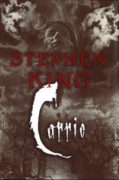2022 End-of-Year Faculty Reading List
Rabia Belt, Associate Professor of Law, recommends Stephen King’s Carrie
My recommendation is Stephen King’s Carrie, but it is mostly to endorse a podcast to accompany your reading. I’m generally not a podcast person, but I am a huge fan of Just King Things. It’s a monthly podcast where the two hosts, Michael Lutz and Cameron Kunzelman discuss Stephen King books in publication order: Carrie is King’s first book, and thus, the subject of their first episode. Lutz and Kunzelman are lifelong buddies, with an easygoing and hilarious conversational style. They are also breathtakingly brilliant critics [Lutz is a lit prof and Kunzelman is a film/video game prof] with an encyclopedic range of references at their fingertips. I recommend the podcast for folks who have read King books, but I think it’s gratifying even if you aren’t a King fan or read the underlying book. Lutz and Kunzelman are fantastic guides on how to be a critic and analyze something. They are generous and make good-faith efforts to discern authorial intent. But they also don’t let King off the hook for his missteps. And, identifying these problems is not to indict the book or author, but is the first step in discussing where these issues might originate, how they operate, and what their implications are. Highlights include their discussion of race in Carrie, colonialism in Misery, and anti-Semitism in IT. As a disability scholar, I am gratified how their intersectional analysis incorporates ability. At this point, I am anxiously awaiting the drop of their new episodes, and I am a Patreon subscriber so I can access bonus episodes on King tv and film adaptations, and their other podcasts.
Jennifer Chacón, Bruce Tyson Mitchell Professor of Law, recommends What Storm, What Thunder by Myriam J.A. Chancy, Valentine by Elizabeth Wetmore, and Stay True by Hua Hsu
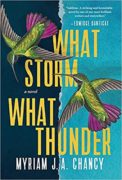
“What Storm, What Thunder by Myriam J.A. Chancy is series of interrelated stories that center around the 2010 earthquake in Haiti. It’s more than a year old now, but the characters and their stories are still occupying a lot of space in my head.
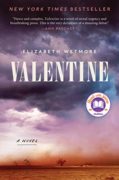
“When I say Valentine by Elizabeth Wetmore is about the despair, racism, and misogyny of a West Texas oil town in the mid-1970s, that probably won’t make you want to rush right out to read it. But do! Even if (unlike me) you didn’t grow up in West Texas in the 1970s, I think the book will exert a strong pull on you. The resonant descriptions of this slice of life and landscape rang true to me when I read them and have haunted me long after I finished the book.
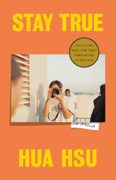
“My final pick is a work of nonfiction. I haven’t even finished it yet, but based on the very strong first half, I’m going to shout out Stay True by Hua Hsu. It is both very specific—a Gen X, Bay Area child of Taiwanese immigrants telling a deeply personal story that is rooted in a particular time and place—and yet perfectly universal in its evocation of youth, family, friendship, and grief,” says Chacón.
Robert Daines, Pritzker Professor of Law and Business, recommends When We Cease to Understand the World by Benjamin Labatut and The Fifth Risk by Michael Lewis
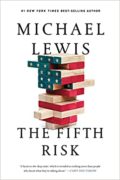
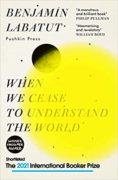
William B. Gould IV, Charles A. Beardsley Professor of Law, Emeritus, recommends The Vanishing Half by Brit Brennett, Ted Kennedy: A Life by John A. Farrell, Homecoming: The Path to Prosperity in a Post-Global World by Rana Foroohar, and The UAW and the Heyday of American Liberalism 1945-1968 by Kevin Boyle
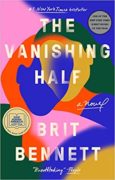
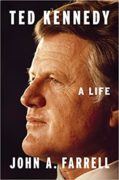
“I’m just in the last few pages of Ted Kennedy: A Life by John A. Farrell, really a well written analysis of the past half century of politics as well as Kennedy. Its of particular interest to me as Senator Kennedy steered my nomination as NLRB Chairman through to confirmation by the Senate nearly 3 decades ago.
“I’m just now dipping into Rana Foroohar’s Homecoming: The Path to Prosperity in a Post-Global World. She is an extraordinarily talented political economy writer for the Financial Times.
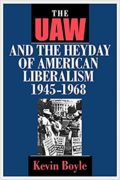
“Finally, I’m beginning The UAW and the Heyday of American Liberalism 1945-1968 by Kevin Boyle of Northwestern, a book which discusses a lot of my colleagues from my days with the UAW in my first years after law school,” says Gould.
Hank Greely, Deane F. and Kate Edelman Johnson Professor of Law, recommends White Shoe by John Oller, The Noise of Time by Julian Barnes, and Ancillary Justice by Ann Leckie
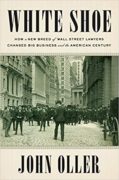
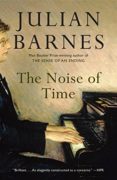
“More recently I read a The Noise of Time by Julian Barnes, a novelized biography of Soviet composer Dmitry Shostakovich. Barnes is a beautiful writer and he brings to life three episodes in Shostakovich’s life. I like classical music, but was never especially drawn to his works, but I found this envisioning of his experiences, from Stalin to Khrushchev and beyond, compelling, about both him and the world he lived in, sometimes with integrity and sometimes not. I will long remember the depiction of him spending night after night outside the elevator in his apartment building, waiting to be arrested but not wanting his wife and child disturbed. And it has sent me back to his music, with greater appreciation.
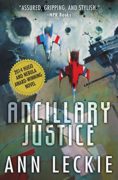
“And my science fiction recommendation this time is another Hugo Award- winning novel, Ancillary Justice, by Ann Leckie. This, the first book of a trilogy, reveals a fascinating multi-star system culture and empire, through two lines of the life of its protagonist, an artificial intelligence that lived several thousand years as starship and much of its crew and was then shrunken into a single, driven, human body,” says Greely.
Elizabeth Hidalgo Reese, Assistant Professor of Law, recommends The Sandman by Neil Gaiman
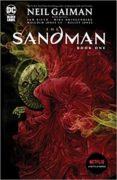
“I’ve been a fan of these graphic novels since long before they were made into a Netflix series! They are complex, dark, and draw on themes of myth, purpose, family, and humanity in really fascinating ways. It is a hopeful and cynical modern day fable (and anti-fable) all at once,” says Hidalgo Reese.
Pamela Karlan, Kenneth and Harle Montgomery Professor of Public Interest Law, recommends Suffrage Reconstructed: Gender, Race, and Voting Rights in the Civil War Era by Laura Free, Constitutional Orphan: Gender Equality and the Nineteenth Amendment by Paula A. Monopoli, Revolutionary Backlash: Women and Politics in the Early American Republic by Rosemarie Zagarri, The Gotti Wars by John Gleeson, How the World Is Passed by Clint Smith, Telephone Tales by Gianni Rodari, and La Fabbrica Di Cioccolato by Roald Dahl
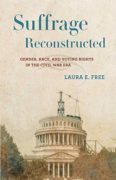
“For a book chapter I was asked to write on “Election Law and Gender,” I read a ton of the scholarship. Three books that stood out, for being thought-provoking and eminently readable, are Laura Free, Suffrage Reconstructed: Gender, Race, and Voting Rights in the Civil War Era (2015); Paula A. Monopoli, Constitutional Orphan: Gender Equality and the Nineteenth Amendment (2020); and Rosemarie Zagarri, Revolutionary Backlash: Women and Politics in the Early American Republic (2008).
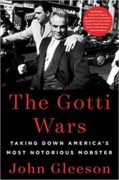
“John Gleeson’s The Gotti Wars is a total page-turner about the prosecution of the Teflon Don.
“And Clint Smith’s How the Word Is Passed is a travelogue I couldn’t put down. Smith travels to sites around the United States to ask how the history of slavery continues to reverberate today.
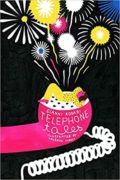
“At the complete other end of the spectrum, the new translation of Gianni Rodari’s Telephone Tales is a book to delight everyone. Every night, at nine o’clock, wherever he is, Signore Bianchi calls his child to tell her a bedtime story—a story that lasts only as long as a single coin deposited into a payphone. The stories are all charming but with a bit of an edge. I’ve been reading these in the original Italian as part of my continuing quest to learn the language, but it’s a relief to have the English version too. And in the reverse direction, I recently bought a copy of La Fabbrica Di Cioccolato. (Persis Drell, the provost, recommended reading Harry Potter in Italian, but I’m more a Roald Dahl fan)” says Karlan.
Mark Lemley, William H. Neukom Professor of Law, recommends the Scholomance series by Naomi Novik, which begins with A Deadly Education
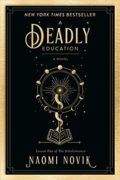
“Naomi Novik’s Scholomance series is brilliantly written and engaging, a sort of dark mirror version of Harry Potter with a cynical, wisecracking protagonist,” says Lemley.
Michael W. McConnell, Richard and Frances Mallery Professor, recommends An Officer and a Spy by Robert Harris and Mussolini by Denis Mack Smith
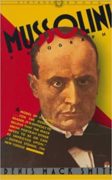
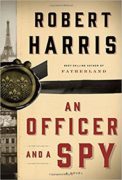
“Mussolini by Denis Mack Smith. I first read this biography some forty years ago and decided I needed a refresher. It seems incredible that so unappealing a character as Benito Mussolini—a brazen liar and thug who shifts policies and principles with cold abandon—could come to lead a modern nation, largely through democratic choice (at least the first time). Mussolini’s ability to disseminate disinformation, suppress dissent, and intimidate his underlings is startling even by today’s standards,” says McConnell.
Curtis Milhaupt, William F. Baxter-Visa International Professor of Law, recommends Putin’s People by Catherine Belton, Putin’s Kleptocracy: Who Owns Russia? by Karen Dawisha, and Klara and the Sun by Kazuo Ishiguro
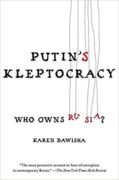
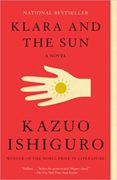
“Klara and the Sun by Nobel Laureate Kazuo Ishiguro: Set in a future in which genetically engineered children have Artificial Friends, Ishiguro provides a highly imaginative and thought-provoking reflection on human love and belief in a higher power,” says Milhaupt.
David Mills, Professor of the Practice of Law, recommends The Kindly Ones by Jonathan Littell and Projections by Karl Deisseroth
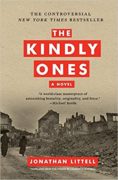
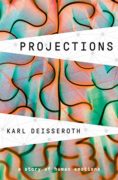
Projections: Karl Deisseroth has spent his life pursuing truths about the human mind, both as a renowned clinical psychiatrist and as a researcher creating and developing the revolutionary field of optogenetics, which uses light to help decipher the brain’s workings. In Projections, he combines his knowledge of the brain’s inner circuitry with a deep empathy for his patients to examine what mental illness reveals about the human mind and the origin of human feelings—how the broken can illuminate the unbroken.
A. Mitchell Polinsky, Josephine Scott Crocker Professor of Law and Economics, recommends Crossroads by Jonathan Franzen
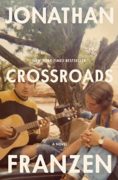
“I had heard about Jonathan Franzen’s writing but had never read any of his work. I think his 2002 book, The Corrections, is his best known one, but I read a very favorable review of his 2021 book, Crossroads, and am reading it. Story about the fraught relationships within a family headed by a pastor. I never would have expected the subject to be as interesting as it turned out to be. Brilliant writing that brings characters to life with warmth and humor. Incredible dialogue. Franzen is now one of my favorite fiction writers. I plan to read The Corrections too,” says Polinsky.
David Alan Sklansky, Stanley Morrison Professor of Law, recommends The Ruin of All Witches: Life and Death in the New World by Malcolm Gaskill
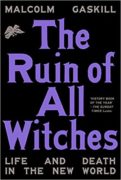
“The Ruin of All Witches: Life and Death in the New World, by Malcolm Gaskill, is one of the most gripping and eye-opening books of history I’ve ever read. It’s about a husband and wife accused of witchcraft in Springfield, Massachusetts, in 1651. Springfield was then a remote, frontier settlement, and the book gives you a visceral feel for what it was like to live in a small Puritan community on the western edge of the English-speaking world. It brings alive the fear, isolation, and strangeness the settlers experienced, and it shows how their emotional and spiritual impulses, the hardness of their lives, and the dynamics of early capitalism, could sometimes combine to drive spouses, neighbors, and coreligionists against each other, making enemies of people desperately in need of allies. It’s not an uplifting book, but it’s a deeply human one, and it reads like a novel,” says Sklansky.
Barton H. “Buzz” Thompson, Jr., Robert E. Paradise Professor of Natural Resources Law at Stanford Law School and Professor of Environmental Behavioral Sciences at the Stanford Doerr School of Sustainability, recommends The Survivor: Bill Clinton in the White House by John Harris
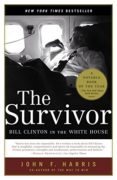
Having spent the pandemic working my way chronologically through biographies of the U.S. presidents, I’m finally at the end of the 20th century (where I expect to stop on the theory that books on more recent presidents do not have sufficient distance from their subjects to provide much objectivity or perspective). For President William J. Clinton, I am reading The Survivor: Bill Clinton in the White House, by John Harris, an American political journalist who co-founded Politico. The Survivor is not a traditional biography. It tells you virtually nothing about Clinton before the presidency or what he has been doing since. But for anyone like me who is interested in a detailed and rich narrative of Clinton’s years as president, this is a splendid and fascinating work.

